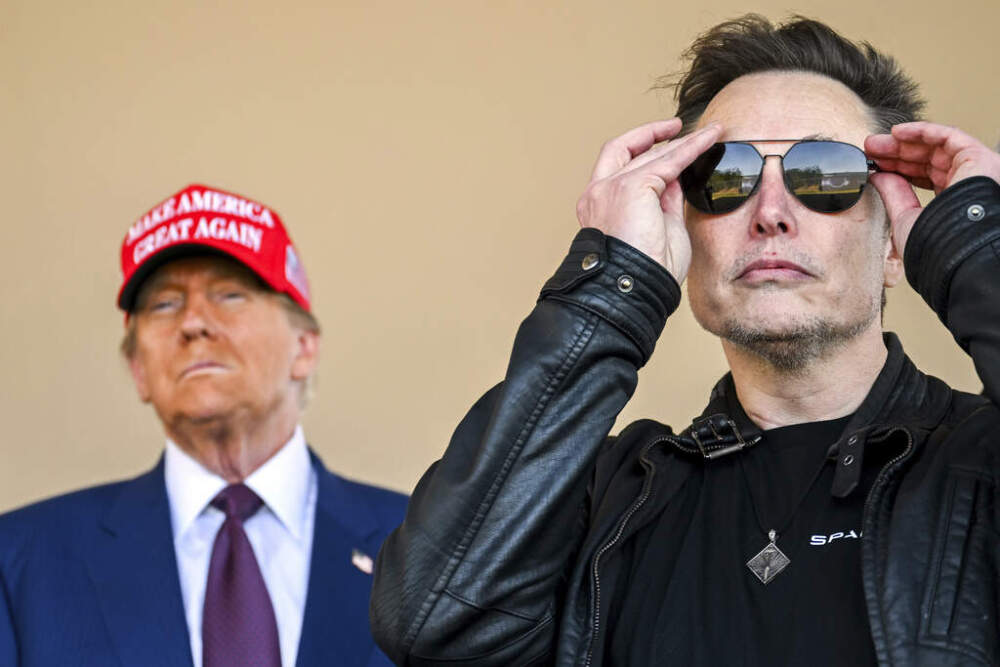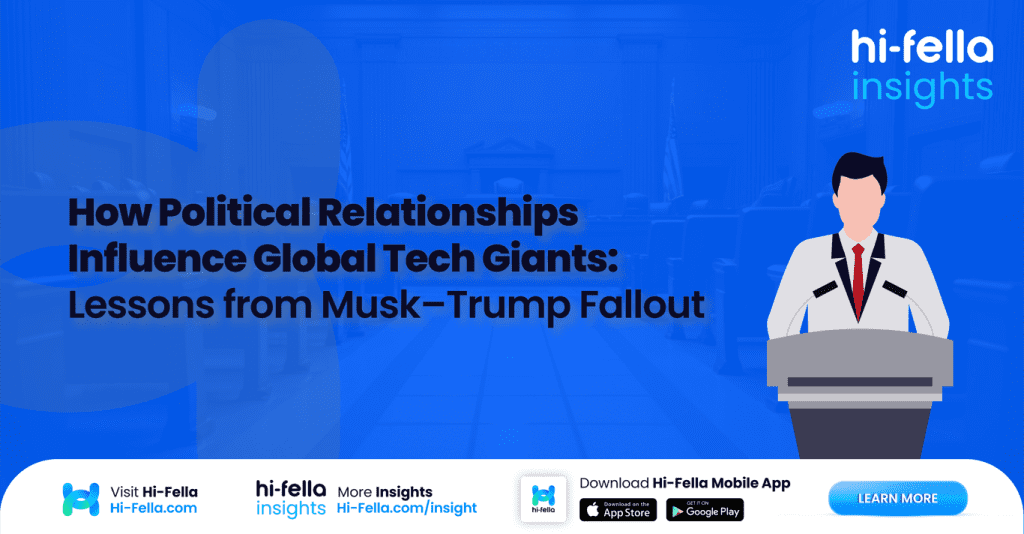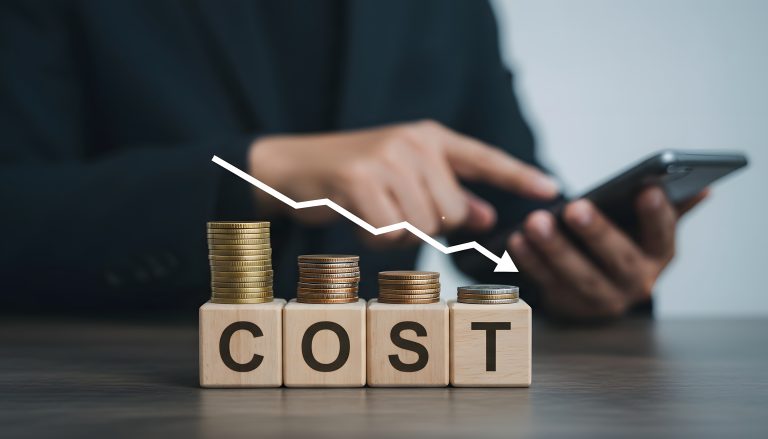In the evolving landscape of global tech, business success is not just driven by innovation—it is deeply shaped by politics. From regulatory policies to media narratives, the actions and alliances of political leaders can influence the strategies and reputations of even the most dominant tech firms.
The recent fallout between Elon Musk and former U.S. President Donald Trump is not just tabloid fodder—it’s a real-world case study in how political relationships can impact tech businesses at scale. As the geopolitical stage becomes increasingly polarized, platforms like Hi-Fella offer a way for companies to stay focused on what truly matters: building global partnerships, not political affiliations.
The Power Dynamics Between Tech Titans and Politicians

The entanglement of political power and tech leadership is not new. Companies like Meta, Amazon, and Tesla have long navigated tightropes between political influence and public image. Some engage in regulatory lobbying, while others distance themselves from administrations based on public sentiment and policy alignment.
The Musk–Trump dynamic illustrates this vividly. Once seen as ideological allies, their public falling-out over platform control, misinformation, and political narratives reflected deeper questions: How much influence should a single tech leader wield? What happens when that influence clashes with the political establishment?
Historical parallels abound—Bezos vs. Trump, TikTok vs. the U.S. government, Facebook and election scandals—each demonstrating how proximity to power can elevate or imperil a tech brand’s global reputation.
The Business Impact of Political Fallout — Real or Perceived
Following the Musk–Trump rift, market reactions were swift. Tesla shares experienced brief volatility, while platform X (formerly Twitter) saw a polarizing split in user sentiment. Investors questioned leadership stability and the long-term direction of Musk-led platforms. Was the fallout economic? Symbolic? Likely both.
This is not an isolated phenomenon. When Bezos publicly clashed with Trump, Amazon faced antitrust scrutiny and lost key Pentagon contracts. TikTok’s tensions with the U.S. government prompted nationwide bans and operational reconfiguration.
These examples show that political alliances—or conflicts—carry tangible consequences. Perception affects trust. Trust affects valuation. And in a hyperconnected global economy, trust is currency.
Global Tech Expansion Amid Polarised Governance
When domestic politics destabilize, tech companies turn outward.
Tech giants are increasingly recalibrating their global strategies to reduce dependence on single-market politics. Tesla, for instance, continues to expand manufacturing in China, India, and Germany. SpaceX’s Starlink has become a pivotal tool in Ukraine’s defense communications, positioning it within international geopolitical frameworks.
Elsewhere:
- U.S. cloud providers are localizing data centers in Europe for regulatory compliance.
- Social platforms are investing in ASEAN-based moderation hubs.
- AI companies are piloting ethical frameworks tailored to Latin America’s regulatory systems.
These shifts reflect a broader strategy: diversify political risk by diversifying market reach. Hi-Fella supports this movement by offering a neutral, globally connected trade environment.
The Role of Regulation, Censorship, and Public Sentiment
When political tensions flare, regulation often follows. From Section 230 reforms in the U.S. to data sovereignty laws in the EU and Asia, governments are rewriting the rules of digital engagement.
Think tanks like the Brookings Institution and World Economic Forum report a significant uptick in public demand for political neutrality among tech platforms. The post-pandemic period, marked by misinformation crises and digital tribalism, has only amplified this pressure.
Public sentiment is clear: users expect platforms and tech brands to focus on reliability, transparency, and neutrality—not ideological alignment.
In this environment, tech businesses must navigate censorship policies, compliance standards, and shifting global expectations—all while maintaining operational integrity.
Navigating Sanctions and Export Controls in Emerging Tech Markets
As global tensions rise, sanctions and export controls are reshaping how tech companies engage with international markets. Emerging regions—often rich in talent, resources, or demand—are now under tighter scrutiny due to geopolitical alliances and rivalries.
Export restrictions on advanced technologies, especially semiconductors, AI tools, and cybersecurity infrastructure, force tech companies to rethink their supply chain strategies. Businesses must now evaluate compliance risks in real-time, using smarter trade intelligence and due diligence platforms.
Hi-Fella provides a structured environment where vetted exporters and buyers can connect while navigating these evolving restrictions. By identifying verified trade zones and partners, tech companies can grow globally without breaching compliance frameworks.
How Trade Wars Impact Supply Chains in the Tech Sector
Trade wars between major economies, such as the U.S. and China, have introduced tariffs, barriers, and uncertainty into the global tech supply chain. These disruptions affect everything from raw materials sourcing to last-mile delivery of consumer electronics.
Supply chain resiliency is now a key performance metric. Companies are investing in multi-country manufacturing bases, nearshoring options, and inventory visibility to minimize risk. The cost of agility has replaced the cost of efficiency as the new benchmark.
With Hi-Fella, tech businesses can discover alternative suppliers and manufacturers across untapped or less politically sensitive regions. The platform empowers companies to diversify their partnerships and reduce overreliance on single-country ecosystems.
The Role of Government Subsidies in Global Tech Competition
Governments are pouring billions into tech subsidies to compete for leadership in AI, green tech, chips, and clean energy. The U.S. CHIPS Act, EU’s Digital Decade agenda, and China’s Made in China 2025 strategy are prime examples of state-backed acceleration.
These subsidies fuel innovation but also distort global markets. Smaller tech firms in developing countries may struggle to compete unless they align with subsidized ecosystems or tap into co-funded trade programs.
Hi-Fella helps level the field by giving SMEs access to global buyer networks and visibility. By connecting with subsidy-backed enterprises abroad, businesses can join collaborative innovation efforts and gain market traction despite financial asymmetries.
Join Hi-Fella Today!
Political volatility is now a business variable—and for tech companies, building resilient, diversified, and politically neutral supply chains is more critical than ever.
Hi-Fella provides a global B2B platform where tech innovators and manufacturers can:
- Discover verified buyers and suppliers across borders
- Engage in trade free from political friction
- Secure visibility in new, stable markets
- Future-proof their supply chain strategies with confidence
For businesses navigating today’s polarized landscape, Hi-Fella offers what matters most: connection over conflict, and collaboration beyond politics.
Join Hi-Fella today to build a stronger, more stable foundation for global growth—one partner at a time.








